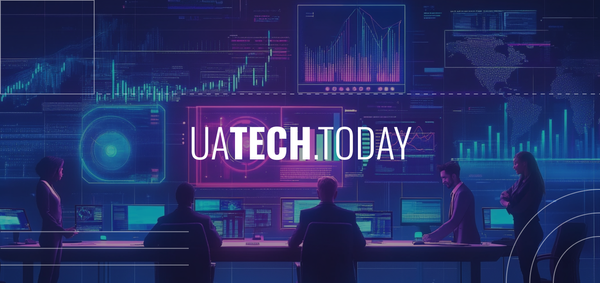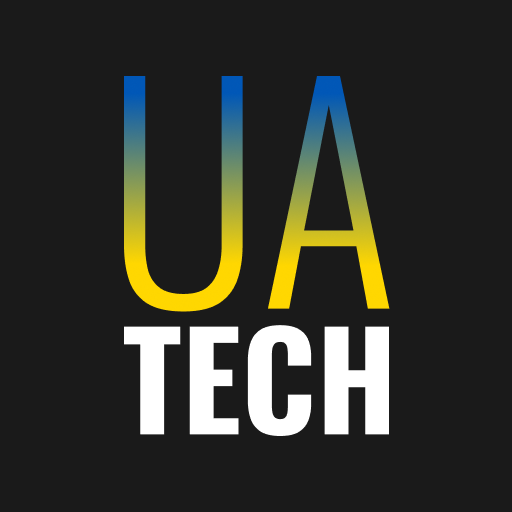In California, a team of just four built an AI-powered code editor that secured $60 million in funding. In New York, fifteen people created a SaaS product that hit $15 million in revenue within two months. A solo Dutch entrepreneur used AI tools to generate $3.1 million annually across multiple startups—all without hiring a single employee.
What ties these remarkable success stories together? Advanced AI tools that are supercharging productivity and rewriting the rules of what small teams can accomplish. These aren't hypothetical scenarios or future projections—they're happening right now, creating a new playbook for lean operations where team size no longer limits ambition or output.
As the AI & Emerging Technologies Editor at UAtech.today, I won’t just be covering these tools—I use them daily. At the startup I help lead, I’ve applied AI agents to engineering, ops, and support workflows, often turning days of work into hours or even minutes. This series will draw from that hands-on experience to share practical insights, real-world examples, and a clear-eyed look at how lean teams can unlock serious leverage with AI.
2025: The Year of Agents
2025 is officially the "year of agents," according to industry experts from Insight Partners, who have publicly stated that "2025 will be the year of agentic AI" following 2024's focus on LLMs. This viewpoint is echoed by analysts at Leonis Capital in their State of AI 2025 report. While the hype around ChatGPT has settled, a more profound transformation is taking hold: the shift from AI as a conversational assistant to AI as an autonomous worker that executes tasks, makes decisions, and delivers measurable business outcomes.
For lean teams, this shift represents an unprecedented opportunity. Smaller organizations can adopt and integrate AI agents rapidly, helping them scale efficiently, shorten development cycles, improve quality, and create more fulfilling work environments by removing routine tasks that drain employee motivation.
What Makes an AI Agent Different from a Chatbot
Before diving deeper, let's clarify what an AI agent is, since the term has become somewhat diluted as it's gained popularity.
Unlike a conversational AI (like the basic version of ChatGPT) that simply responds to prompts, an AI agent has three key characteristics:
- Autonomy: Agents can perform tasks with minimal supervision, making decisions within defined parameters.
- Tool use: Agents interact with other software, databases, or systems to accomplish goals rather than just generating text.
- Goal orientation: Agents work toward specific objectives rather than merely responding to input.
Think of the difference this way: a chatbot helps you brainstorm email content; an AI agent drafts the email, checks it against your style guide, accesses your CRM to personalize it, schedules delivery for the optimal time, and follows up if no response is received—all with a single instruction from you.
This shift from assistive to agentic AI explains why we're seeing such dramatic productivity gains.
The Developer Revolution That's Already Happened
The most dramatic productivity transformation has already occurred in software development—and it provides a roadmap for what's coming to other business functions.
Tools like GitHub Copilot began as clever code completion assistants but have evolved into what are effectively AI pair programmers. More advanced tools like Cursor and Windsurf go further, functioning as autonomous coding agents.
For non-technical readers, here's what these tools can do:
GitHub Copilot suggests code as developers type, similar to how Gmail might suggest the end of your sentence. But newer versions can now generate entire functions or classes based on comments describing what you want.
Cursor takes this further with what developers call "vibe coding." A user describes what they want in plain English, and the AI generates complete solutions—not just snippets but entire working features. For non-developers, imagine describing a spreadsheet calculation you need and instantly getting a fully-working formula without needing to know Excel functions.
The productivity impact is staggering. According to a 2024 study of over 4,000 developers, GitHub Copilot users produced 26% more code than non-users, were 13.6% more prolific in writing error-free code, and 5% more likely to have their work approved by peers . Junior developers saw the biggest gains, effectively democratizing coding expertise.
Internal enterprise metrics suggest that developers using AI assistance can code up to 1.5× faster overall. Gartner projects that by 2028, 75% of enterprise software engineers will use AI coding assistants, up from less than 10% in early 2023. Looking ahead, Anthropic CEO Dario Amodei stated in March 2025 that AI could be writing 90% of code within 3 to 6 months, and potentially all code within a year. Meta CEO Mark Zuckerberg echoed similar expectations, predicting in January 2025 that AI agents could replace mid-level programmers by the end of the year.
In my experience as an engineering manager, AI coding tools have transformed my productivity. I can now tackle significantly more development myself. Projects I once classified as "nice to have" or workflow automations that weren't "worth the effort" now take hours instead of days. My productivity has increased 3-10x depending on the task. Most remarkably, I've compressed the entire development cycle—from product concept to design to functional prototype—from weeks to a single day. This eliminates unnecessary meetings and communication overhead, allowing me to simply get things done. Sometimes, I find it's faster to explain requirements to an AI and implement solutions immediately than to delegate to my development team.
The implications extend beyond professional developers. Founders, product managers, and other non-technical staff can now build functional prototypes and MVPs without extensive coding knowledge. This democratization of software creation is particularly valuable for resource-constrained lean teams.
AI Agents: Your New Digital Workforce
The revolution that's transformed software development is rapidly expanding to other business functions. We're witnessing the emergence of AI agents that function essentially as digital employees across departments:
Customer Support Agents: AI systems can now handle customer inquiries with remarkable effectiveness. A credit union that deployed an AI virtual agent resolved 67% of support queries without human help, slashing average call wait time from 12 minutes to under 3 minutes while improving customer satisfaction by 31%.
Sales and Marketing Agents: AI tools now qualify leads, draft personalized outreach, and even conduct initial conversations. Teams leveraging AI are 1.3× more likely to hit revenue targets compared to those without AI.
Operations Agents: AI systems are streamlining scheduling, inventory management, and other operational functions. A multi-location business that adopted an AI scheduling assistant reduced staff scheduling time by 73% (from 15 hours to 4 hours weekly) and cut appointment no-shows by over half.
These aren't experimental technologies—they're practical tools already delivering measurable results for lean teams across industries. As these capabilities mature, we'll increasingly see AI agents treated as specialized team members handling routine tasks autonomously while humans focus on higher-value activities.
The Investment Advantage: What VCs Are Looking For
For startups and growing businesses seeking funding, AI adoption is becoming a critical differentiator. Investors are increasingly asking about AI strategy during pitch meetings, recognizing its impact on efficiency, scalability, and long-term competitive edge.
The numbers are striking: In Q2 2024, U.S. AI startups raised approximately $24 billion—nearly half of all venture funding that quarter (News.Crunchbase.com). By the end of 2024, an estimated 62% of all North American startup funding went to AI-related companies (News.Crunchbase.com).
When evaluating AI-driven startups in late 2024, investors began applying new criteria:
- Tangible ROI from AI: Investors are favoring businesses that can demonstrate clear productivity or cost savings from their AI tech. According to industry analysis, most VCs now view measurable AI-driven efficiency as a key validation signal (CBInsights.com).
- AI talent and culture: A team’s AI expertise—and its ability to rapidly iterate with new AI tools—is increasingly under scrutiny. Some term sheets now include questions about AI integration strategy and technical adaptability (BusinessInsider.com).
As one VC put it, "the new status symbol isn't headcount, it's revenue per employee" (Blog.NewfundCap.com). This ultra-lean model, enabled by AI agents, is attractive to investors for its potential to scale with high margins.
The math is compelling: AI-native startups are now operating with efficiency ratios as low as 0.2 employees per $1 million in ARR—a 15–25× improvement over typical software companies from the 2010s (Blog.NewfundCap.com). Startups like Cursor and Windsurf have reached billion-dollar valuations with remarkably small teams by leveraging AI to amplify human output.
Empowering Your Team with AI
Rather than replacing employees, forward-thinking organizations are augmenting their teams with AI tools. This "super-power" approach is proving far more effective than viewing AI as a replacement technology.
The parallel to early computer adoption is instructive: Today, we wouldn't dream of hiring someone who couldn't use Excel for a data-intensive role. Soon, the same will be true for AI tools—they'll be essential skills, not optional ones.
To effectively adopt AI agents in your organization:
- Encourage experimentation: Create a culture where employees are rewarded for finding AI-powered workflows that boost productivity.
- Provide training and resources: Invest in helping your team understand how to effectively prompt and direct AI agents.
- Start with specific pain points: Identify repetitive, time-consuming tasks where AI agents could make an immediate impact.
- Measure outcomes: Track productivity and quality improvements to quantify the ROI of your AI investments.
According to a broad-based 2024 survey, 51% of small and mid-sized businesses that adopted generative AI saw at least a 10% increase in revenue attributable to those tools. This isn't speculative—it's happening now.
The Path Forward: Realistic Expectations
It's important to acknowledge that today's AI agents aren't perfect. They can make mistakes, may require oversight for critical decisions, and sometimes need human intervention to stay on track. The technology is evolving rapidly, but it's not yet at the science fiction level of complete autonomy.
However, waiting for perfection is a strategic mistake. The tools are improving monthly, and the organizations gaining the most advantage are those learning how to effectively integrate AI agents now, developing the workflows and expertise that will position them for even greater gains as the technology matures.
This is a fundamentally different way of working than what most of us are accustomed to. It requires shifting from a mindset of "doing the work" to one of "directing the work"—becoming orchestrators of AI agents rather than executors of tasks. For many professionals, this is an adjustment that takes time and practice.
The revolution we're witnessing isn't about replacing humans—it's about creating superpowered humans who can achieve extraordinary outcomes. AI agents are the tools enabling this transformation, turning small teams into powerhouses of productivity.
For lean teams, this presents an unprecedented opportunity. Without the bureaucracy and legacy systems that slow enterprise adoption, smaller organizations can quickly implement AI agents and realize 3-10x productivity gains across functions.
This isn't a technology trend to watch from the sidelines. It's a fundamental shift in how work gets done, and the choice is clear: empower your team with AI agents or be outperformed by those who do.
by Vitali Kaspler – AI & Emerging Technologies Editor
Vitali Kaspler is a product and technology leader with a strong history of driving impactful solutions. As a founding team member and VP of Engineering at Mealco, he shaped an AI-powered platform that earned a Time Magazine Best Invention award in 2022. Beyond technical execution, he defined the product’s direction, using AI and analytics to optimize operations and solve real-world problems. With deep experience across multiple startups, he brings a sharp understanding of innovation and growth to his work. Now, Vitali is focused on advancing AI—using large language models, AI agents, and new tools to tackle business challenges. He offers clear, practical insights on how AI is transforming industries.



